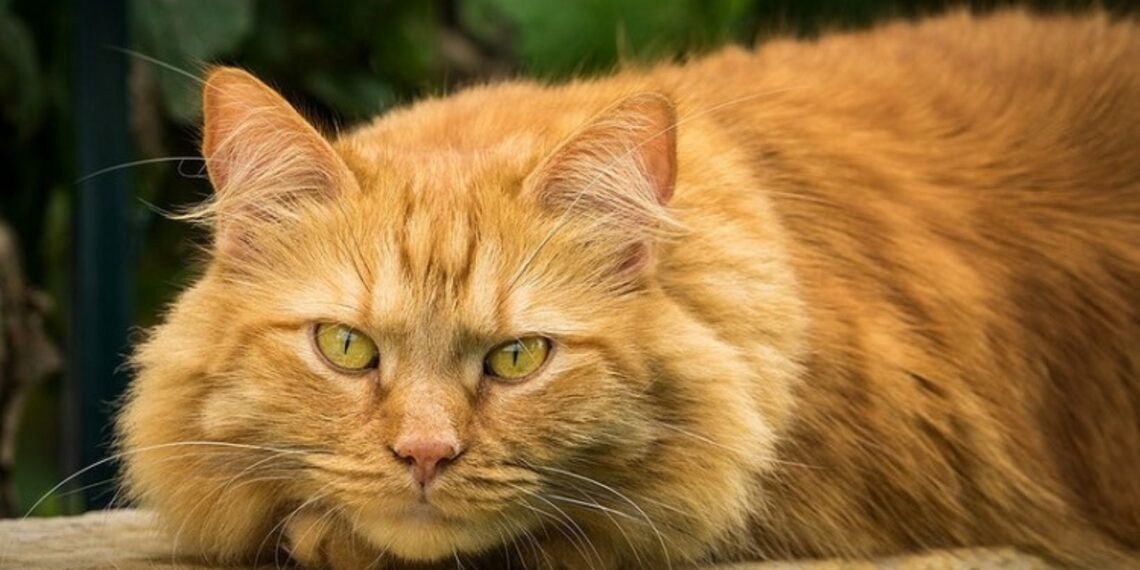Cat and dog owners are always conscious of the weight of their pets. Most pet owners don’t find time to take their dogs or cats out for a walk. Therefore, their pets are more likely to gain weight due to more intake of calories and lack of exercise. According to a study, over 35 to 40% of cats living in developed countries are overweight or obese.
It means almost half of the cats that receive veterinary care in the US do not have a healthy weight. If you have a cat that seems overweight, it’s time to consult a veterinarian and work to help it lose weight. In this post, we will explore some effective ways to maintain your cat’s weight.
Make Sure Your Cat is Overweight
Some breeds of cats have more weight naturally than the common breeds found in households. So, the first step is to know the ideal weight of your cat breed. Search and study your cat’s weight online. Once you find the natural weight of your cat, you will be able to determine whether your cat is overweight.
Visit Your Veterinarian
Once you determine that your cat is overweight, you should consult your veterinarian for a check-up. Your vet will conduct a check-up to know whether the extra weight is normal or a result of an underlying medical condition. In case of a medical condition, your vet will prescribe some medications, and they may suggest some changes in diet.
Adjust the Diet
To help your cat lose weight, you need to make adjustments in its diet. As all breeds of cats are carnivores and need a major portion of meat and protein, there is no point in reducing their intake. You should make adjustments in the intake of carbohydrates and fats. Both fats and carbohydrates are calorie-rich macronutrients. A simple way to consider weight loss in pets is to reduce the intake of high-calorie foods and consume low-calorie foods.

When it comes to the right food, watch out for those fancy-sounding “diet” cat foods. Some of them skimp on protein and go heavy on carbs, which can mess with your cat’s health. Check the ingredients and make sure your feline friend’s getting enough protein.
Most canned foods have more protein and fewer carbs compared to dry stuff, but you can also find dry food that’s high in protein and low in carbs. And if your cat’s still struggling with the scale, consider trying a special “light” cat food.
These light foods are less packed with calories, so you can give your cat the same amount without overloading them. But remember, they need all the essential nutrients, too!
Underweight Cats
Not all cats are obese; some are thin and suffer from low-weight issues. If your cat is underweight, first, you need to figure out if there’s something medically wrong with your kitty, especially if they’ve suddenly lost weight or seem sick.
Now, if your cat’s already dealing with some health condition and still can’t keep the weight on, maybe an appetite booster from your vet could help.
But what if your cat seems healthy otherwise, just a bit too skinny? Well, you might need to up their food game. Ask your vet what’s best for your fluffy friend. Most veterinarians recommend a high-calorie formula to feed your cat for healthy weight gain.
However, it is not good to rely completely on a cat feed formula. A healthy diet with low carbohydrates and high protein is equally important. Moreover, make sure that your cat gets the proper vitamins and minerals necessary for its overall health.
Portion Size Matters
In addition to calories, the amount of food you serve your cat also matters a lot when it comes to losing or gaining weight. So, where most people focus on calories, you should also consider the portion size. If your vet recommends the right portion for your cat, you should follow that you can consult a pet dietician to get the correct portion size. The right portion size depends on your cat’s age, breed, weight, and overall health.

Now, think about portion sizes. Instead of three big meals, how about smaller, more frequent munchies? Your cat won’t feel as hungry throughout the day, and the begging might decrease. Keep a food chart if you want to track what and when you’re feeding.
Keep Them Active
Your pet cannot lose weight until it stays active and burns calories. Like humans, cats also need to burn calories to shed those extra pounds. Although cats cannot exercise in a gym, you can take them for a daily walk. Another best option is to take our furry friend to a park and let it play there for half an hour.
In addition, create a play area in your home where your cat can play or rest anytime. Also, bring new toys for your cat to avoid boredom. Cats are attracted to new and colorful toys that encourage them to play and stay active.
Summing Up
Obesity in cats is a common problem, especially in adult and senior cats. Unless your cat suffers from a medical condition, there is nothing to worry about. Making adjustments in its diet and helping her lead an active day-to-day routine will help her lose weight. Also, regular visits to your vet will ensure that it stays healthy and treat any illness in the very beginning stage. Following the tips in this post can help pet owners maintain the weight of their furry friend and make it lead a healthy life.













